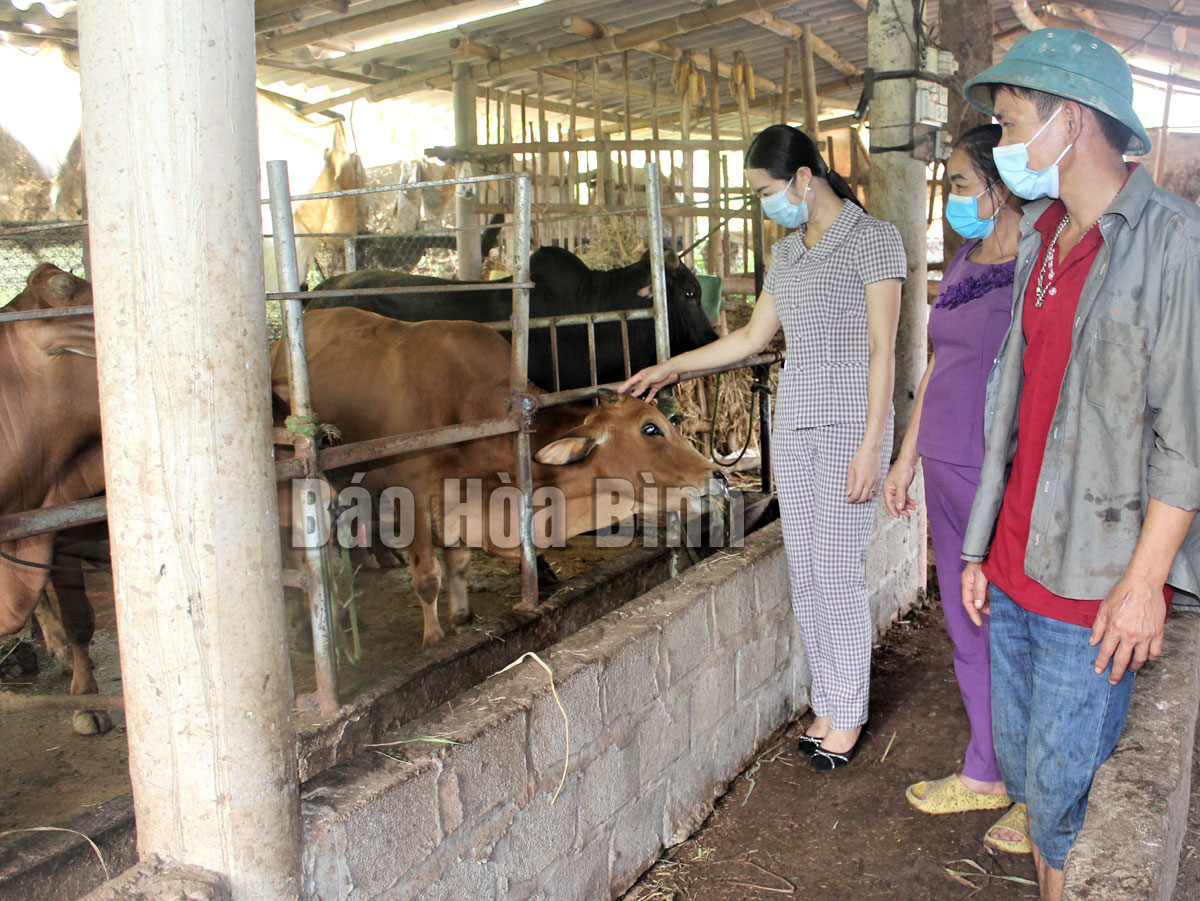



Thanks to a loan from the bank for social policies, the family of Bui Van Don in Trai Sao hamlet of Tan Lap commune (Lac Son district) invests in raising cows, earning high economic efficiency.
Tan Lap is located at the centre of Lac Son district. Over the past years, local residents' living standards have been improved. Coming to Tan Lap today, visitors can see positive changes with its concreted roads. The commune is striving to complete new-style rural area building criteria.
Bui Thi Thuy, Secretary of the commune's Party Committee, said that currently, the commune's per capita income reaches 36.2 million VND per year, 4 million VND higher than that of 2020, and the poverty rate falls to under 10 percent.
She attributed that result to the important role of preferential loans from the Vietnam Bank for Social Policies. Thanks to these loans, many poor households and other policy beneficiaries overcome difficulties. The total outstanding credit is currently 29.5 billion VND, with nearly 1,500 households having outstanding loans.
Not only being leverage for poverty reduction, the Vietnam Bank for Social Policies' loans have played an important role in building new rural areas in Tan Lap commune. According to Bui Thi En, a full-time official of the Bank for Social Policies in charge of Tan Lap commune, in the past two years, loans for rural clean water and environmental sanitation and loans for business households in disadvantaged areas are two programmes with high outstanding loans. These programmes have helped local residents to develop their economy, improve their incomes, and build clean water facilities, thus contributing to the implementation of environmental criteria in the construction of new-style rural areas.
According to a leader of Tan Lap commune, over the past time, loans of the Vietnam Bank for Social Policies have basically met local people's needs. Currently, people still have the need to access loan programmes for clean water and environmental sanitation, and production and business households to invest in economic development. Therefore, the capital continues to become an important driving force to ensure social welfare, reduce poverty sustainably and build new-style rural areas in the locality.